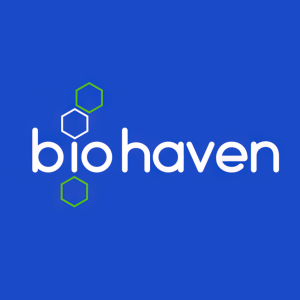Biohaven Highlights Innovation and Advancement Across MoDE and TRAP Degrader Platform at R&D Day, Announcing Positive TRAP Degrader Data Achieving > 80% Sustained Reductions in Galactose-Deficient IgA1 (Gd-IgA1) with Potential First-in-Class BHV-1400 for IgA Nephropathy (IgAN)
Rhea-AI Summary
Positive
- BHV-1400 achieved up to 81% reduction in Gd-IgA1 with sustained effects for weeks after a single dose
- BHV-1400 shows selective targeting without affecting healthy antibodies, offering potential safety advantages
- BHV-1300 demonstrated strong efficacy with up to 87% reduction in IgG levels
- Both drug candidates showed favorable safety profiles with no serious adverse events
- Company advancing to pivotal trials for both drug candidates in 2025-2026
Negative
- Pivotal trials yet to begin, with BHV-1400's trials not starting until 2026
- Current data limited to Phase 1 studies in healthy volunteers, not yet proven in actual patients
- Long development timeline ahead before potential commercialization
News Market Reaction
On the day this news was published, BHVN declined 1.83%, reflecting a mild negative market reaction.
Data tracked by StockTitan Argus on the day of publication.
- Optimized subcutaneous (SC) administration of BHV-1400 achieved rapid, deep, selective, and sustained lowering of Gd-IgA1, differentiating Biohaven's leading TRAP degrader for IgAN from the complement and BLyS/APRIL inhibitor competition.
- Up to
81% reduction of Gd-IgA1 was observed, with reductions from baseline sustained for weeks after a single SC dose administration. - BHV-1400 brings precision immunology to the treatment landscape of IgAN as it was rationally designed to selectively remove galactose-deficient IgA1 (Gd-IgA1), the pathogenic antibody driver of the disease while sparing healthy antibodies IgA, IgG, IgE, and IgM.
- Preservation of immunoglobulins, the complement system, and cell-mediated and humoral immunity offers key differentiation against immunosuppressive BLyS/APRIL inhibitors, complement inhibitors, and budesonide.
- Based upon the rapid and deep reductions of Gd-IgA1 observed with subcutaneous BHV-1400, Biohaven plans to study BHV-1400 in patients with IgAN, initiating a pivotal trial in 2026 using urine protein-creatinine ratio (UPCR) as a surrogate endpoint for accelerated approval.
- Up to
- Optimized SC administration of BHV-1300 has continued to demonstrate rapid, deep, and sustained lowering of total IgG in Phase 1 studies.
- Recently generated clinical data shows that BHV-1300 achieved rapid, deep, and sustained lowering of total IgG, with reductions up to
87% . - Median maximum reductions of
83% were observed within 18 days of the first subcutaneous dose. - The range of IgG reductions possible with varying dosing paradigms of BHV-1300 allows for tunable dosing regimens tailored for acute and chronic disease management, with higher doses for acute disease management and lower, less frequent dosing for chronic disease management.
- Based upon the rapid and deep reductions of IgG and favorable tolerability profile observed with BHV-1300, Biohaven plans to study BHV-1300 in patients with Graves' Disease and initiate pivotal trials in 2H 2025.
- Recently generated clinical data shows that BHV-1300 achieved rapid, deep, and sustained lowering of total IgG, with reductions up to
BHV-1400, the Company's potential first-in-class galactose-deficient IgA1 (Gd-IgA1) TRAP degrader for the treatment of IgA nephropathy (IgAN) achieved deep, rapid, and sustained reductions in Gd-IgA1. In the Phase 1 study, a single dose of BHV-1400 was subcutaneously administered at a dose of 500 mg and achieved rapid, deep and sustained reductions in Gd-IgA1 of up to
Dr. Jonathan Barratt, the Mayer Professor of Renal Medicine at University of Leicester and leading expert in the treatment of IgAN, commented on the new Phase 1 data, "The reason I am excited about BHV-1400 is because it specifically targets the fundamental abnormality in IgA nephropathy while leaving the rest of the immune system untouched. It has the potential to take away the major driver for immune complex formation while leaving other antibodies completely unaffected, which means it has efficacy with unrivaled safety."
IgA nephropathy is the leading cause of glomerular disease globally and is commonly diagnosed in individuals in their second and third decades of life, with most individuals progressing to renal failure over the ensuing 10-15 years. As a disease of the immune system, IgA nephropathy frequently returns even after renal transplant. While the 2021 Kidney Disease Improving Global Outcomes (KDIGO) treatment guidelines recommended only standard chronic kidney disease treatments, the 2024 draft guidelines emphasize the importance of treating the underlying immune disease by removing aberrant forms of IgA. "Galactose deficient IgA1 is the fundamental abnormality in IgA nephropathy," Dr. Barratt explained, "It's a group of IgA molecules that have changes to the sugars on the IgA1 hinge region that fundamentally change the way this antibody behaves. It promotes immune complex formation and it's these immune complexes that cause glomerular injury and damage and promote loss of kidney function."
BHV-1400's selective approach has the potential to offer an improved safety profile compared to broadly immunosuppressive agents. BHV-1400 has been safe and well-tolerated across the ongoing Phase 1 study. Most adverse events (AEs) were mild and self-resolving, there were no discontinuations due to AEs related to study drug, and there were no serious or severe AEs related to drug. There were no clinically significant increases in ALT, AST or bilirubin, no clinically significant reductions in albumin and no clinically significant increases in cholesterol relative to placebo over the 4-week dosing period. There were no clinically significant reductions in other immunoglobulins including IgG, IgA, IgE, or IgM relative to baseline.
With regards to the applicability of Phase 1 data in healthy volunteers to patients with IgAN, Dr. Barratt added, "It's not that the Gd-IgA1 is subtly different, it's the same in both (healthy volunteers and patients with IgAN), but in patients, they just have an excess quantity. And so, what I believe is that because you're seeing a suppressed Gd-IgA1 in healthy subjects you are going to see the same in patients with IgA nephropathy, and indeed that's what some of the drugs targeting BAFF and APRIL have shown. They presented data in their healthy volunteer population that was precisely replicated when they went in to patients."
BHV-1400 fundamentally differentiates from alternative approaches by virtue of its precision. While agents targeting the glucocorticoid receptors may have steroid-like side effects, those targeting complement require vaccination for encapsulated bacterial infections, and B-cell-directing therapies cause reductions in all isotypes of immunoglobulin, potentially increasing long-term infection risk.
Based upon the rapid and deep reductions of Gd-IgA1 observed with SC dosing of BHV-1400, Biohaven plans to study BHV-1400 in patients with IgAN and initiate pivotal trials in 2026 using UPCR surrogate endpoint via the accelerated approval pathway.
At its R&D Day, Biohaven also released new positive data from its completing Phase 1 study of its leading MoDE degrader, BHV-1300, that targets IgG for removal. In the Phase 1 multiple-dose study, SC administered BHV-1300 achieved IgG reductions up to
BHV-1300 has been safe and well-tolerated in subcutaneous doses up to 2000 mg with no clinically significant increases in ALT, AST, or bilirubin, no clinically significant reductions in albumin, and no clinically significant increases in cholesterol over the four-week dosing period relative to placebo. There were no clinically significant reductions in IgG3, IgA, IgE, or IgM relative to baseline. Most AEs were mild and self-resolving, and there were no serious or severe AEs.
BHV-1300 is a potential first-in-class novel small molecule MoDE degrader in development for the treatment of IgG-mediated diseases, such as Graves' Disease. It is designed for self-administration via an easy-to-use and patient-friendly autoinjector. Biohaven plans to study BHV-1300 in patients with Graves' Disease and initiate a pivotal trial in 2H 2025.
Tova Gardin, MD, MPP, Chief Translational Officer at Biohaven, commented, "Our lead MoDE and TRAP degraders, BHV-1300 and BHV-1400, deliver on the promise of ground-breaking chemistry, demonstrating unrivaled selectivity, and profound depletion of potentially disease-causing proteins. With the selectivity of the platform and the initial profile observed in Phase 1, we aim to bring precision immunology to patients with safe and effective treatments that target the core of disease biology. We are incredibly proud of our innovative, agile, and dynamic team that has catalyzed a first of its kind extracellular degrader technology from bench to the clinic. Driven by patient need and leading-edge, mechanistically precise science, Biohaven remains focused on delivering the promise of precision therapies to patients with immune-mediated disease."
About BHV-1400
BHV-1400 is a potential first-in-class Gd-IgA1 TRAP degrader, rationally designed to leverage the body's natural hepatic clearance mechanisms to selectively target and remove Gd-IgA1, the underlying cause of the IgA nephropathy and IgA vasculitis. BHV-1400 spares IgG, IgA, IgE, and IgM to preserve patient immune protection against bacteria, viruses and parasites. The results of the ongoing Phase 1 study confirm that BHV-1400 produces deep reductions in Gd-IgA1 within hours, is selective, sparing other immunoglobulins, is tunable, and is safe and well-tolerated.
About BHV-1300
BHV-1300 is a small molecule and potential first-in-class extracellular IgG degrader, rationally designed to leverage the body's natural hepatic clearance mechanisms to selectively target and remove IgG1, IgG2, and IgG4, the underlying cause of many immune-mediated diseases. BHV-1300 spares IgG3 to preserve patient immune protection against bacteria, viruses and parasites. The results of ongoing Phase 1 study confirm that BHV-1300 produces deep reductions in total IgG, is selective, sparing IgG3, is tunable, and is safe and well-tolerated.
About Biohaven
Biohaven is a biopharmaceutical company focused on the discovery, development, and commercialization of life-changing treatments in key therapeutic areas, including immunology, neuroscience, and oncology. Biohaven is advancing its innovative portfolio of therapeutics, leveraging its proven drug development experience and multiple proprietary drug development platforms. Biohaven's extensive clinical and preclinical programs include Kv7 ion channel modulation for epilepsy and mood disorders; MoDE™ and TRAP™ extracellular protein degradation for immunological diseases; TRPM3 antagonism for migraine and neuropathic pain; TYK2/JAK1 inhibition for neuroinflammatory disorders; glutamate modulation for OCD and SCA; myostatin inhibition for neuromuscular and metabolic diseases, including SMA and obesity; antibody recruiting bispecific molecules; and antibody drug conjugates for cancer. For more information, visit www.biohaven.com.
Forward-looking Statements
This news release includes forward-looking statements within the meaning of the Private Securities Litigation Reform Act of 1995. The use of certain words, including "continue", "plan", "will", "believe", "may", "expect", "potential first-in-class", "potentially", "groundbreaking" and similar expressions, is intended to identify forward-looking statements. Investors are cautioned that any forward-looking statements, including statements regarding the future development, timing and potential marketing approval and commercialization of development candidates, are not guarantees of future performance or results and involve substantial risks and uncertainties. Actual results, developments and events may differ materially from those in the forward-looking statements as a result of various factors including: the expected timing, commencement and outcomes of Biohaven's planned and ongoing clinical trials, including the studies of BHV-1300 and BHV-1400; the timing of planned interactions and filings with the FDA; the timing and outcome of expected regulatory filings; complying with applicable US regulatory requirements; the potential commercialization of Biohaven's product candidates; and the effectiveness and safety of Biohaven's product candidates. Additional important factors to be considered in connection with forward-looking statements are described in Biohaven's filings with the Securities and Exchange Commission, including within the sections titled "Risk Factors" and "Management's Discussion and Analysis of Financial Condition and Results of Operations". The forward-looking statements are made as of the date of this news release, and Biohaven does not undertake any obligation to update any forward-looking statements, whether as a result of new information, future events or otherwise, except as required by law.
MoDE and TRAP are trademarks of Biohaven Therapeutics Ltd.
Investor Contact:
Jennifer Porcelli
Vice President, Investor Relations
jennifer.porcelli@biohavenpharma.com
+1 (201) 248-0741
Media Contact:
Mike Beyer
Sam Brown Inc.
mikebeyer@sambrown.com
+1 (312) 961-2502
![]() View original content to download multimedia:https://www.prnewswire.com/news-releases/biohaven-highlights-innovation-and-advancement-across-mode-and-trap-degrader-platform-at-rd-day-announcing-positive-trap-degrader-data-achieving--80-sustained-reductions-in-galactose-deficient-iga1-gd-iga1-with-potential-fir-302467429.html
View original content to download multimedia:https://www.prnewswire.com/news-releases/biohaven-highlights-innovation-and-advancement-across-mode-and-trap-degrader-platform-at-rd-day-announcing-positive-trap-degrader-data-achieving--80-sustained-reductions-in-galactose-deficient-iga1-gd-iga1-with-potential-fir-302467429.html
SOURCE Biohaven Ltd.










